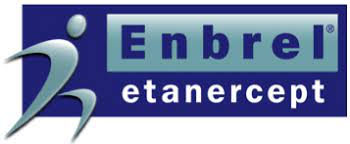- Bone Health
- Immunology
- Hematology
- Respiratory
- Dermatology
- Diabetes
- Gastroenterology
- Neurology
- Oncology
- Ophthalmology
- Rare Disease
- Rheumatology
Etanercept Reverse Switching Is Measured in Netherlands Study
Investigators in the Netherlands observed that 13.7% of patients with rheumatic disease had switched back to etanercept originator at 4.4 years from baseline.
Clinicians should expect 1 out of 7 patients with rheumatic disease to reverse switch from biosimilar etanercept (BS-ETA) to the originator brand (OR-ETA), investigators concluded in a Netherlands study presented at EULAR 2021.
Authors of the study sought to evaluate the incidence of reverse switching among patients (N = 342) who were switched to BS-ETA from OR-ETA. They noted the findings are relevant because reverse switching reduces the savings achieved by switching patients to BS-ETA.
Prior, open label studies reported that from 2.7% to 7.4% of patients retransitioned to originator etanercept after switching to the biosimilar, the authors noted.
In their study, 9.4% of patients reverse switched to the originator by the 1-year mark following initiation on BS-ETA, whereas 69.7% persisted on the biosimilar agent. By the end of the follow-up period, 4.4 years from baseline, 47 patients or 13.7% had retransitioned to OR-ETA. The median time before reverse switching was slightly less than 6 months.
Expressed in odds ratios (OR), where a value greater than 1 indicates higher odds of an association, the univariate determinants for reverse switching were identified as initiating corticosteroids or intensifying immunomodulatory treatments (OR 2.37; 95% CI, 1.03-5.45) and the number of rheumatology department visits (OR 2.0; 95% C, 1.55-2.74).
In multivariate analysis, only rheumatology department visits remained significantly associated with reverse switching (OR 2.19; 95% CI, 1.60-3.01).
Investigators concluded not only that roughly 14% of patients would switch back to OR-ETA but also patients who visit the rheumatology department more often were at higher risk for retransitioning.
They did not identify the brand or brands of etanercept biosimilar included in the study. The originator is Enbrel, an Amgen product.
Reference
Meijboom RW, Gardarsdottir H, Becker ML, ten Wolde S, Egberts ACG, Giezen TJ. Incidence and determinants associated with retransitioning from etanercept biosimilar to etanercept originator. Presented at EULAR 2021: June 2-5, 2021. Poster 0637.
Newsletter
Where clinical, regulatory, and economic perspectives converge—sign up for Center for Biosimilars® emails to get expert insights on emerging treatment paradigms, biosimilar policy, and real-world outcomes that shape patient care.

